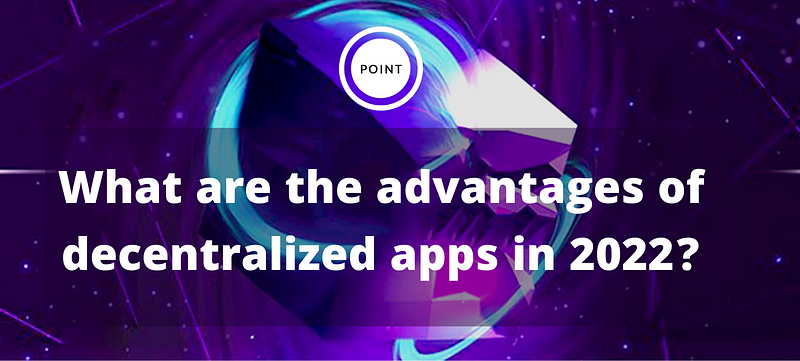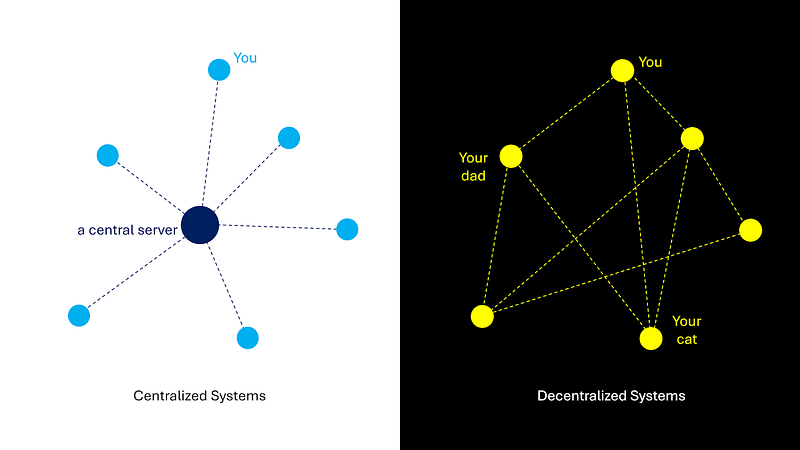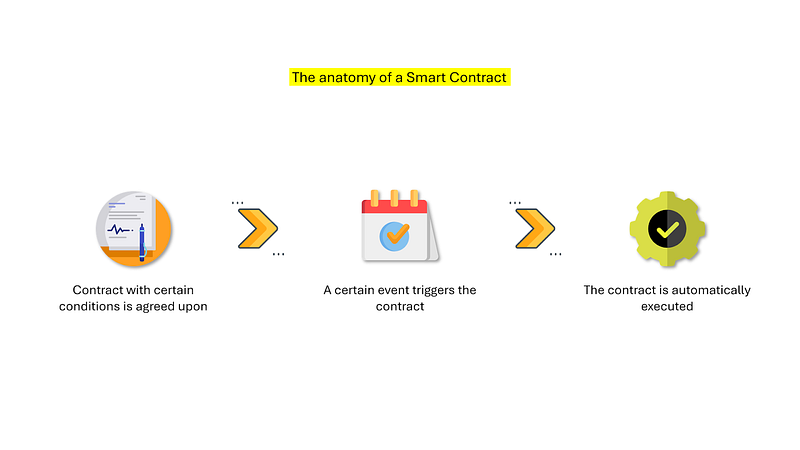What are the advantages of decentralized apps in 2022?

Almost every major application today is owned by a single organization. This means a single entity usually controls all the data associated with that app, whether that involves selling your data to other companies or pulling the plug on your account because you posted a photo of a pizza with pineapple on it.
Even more concerning is the government’s ability to build profiles of people based on data they can pull from your social media accounts, search history, phone calls, and much more. This gives governments and corporations a sneaky window into your private life.
Decentralized applications (Dapps), much like the name suggests, are applications that exist on a peer-2-peer network of computers, with every computer acting as an individual node.

Dapps use tokens to represent ownership, and these tokens are distributed across users, with no single party having control of the tokens. Because they operate through smart contracts (a contract that only authorizes a transaction on the chain once certain conditions are met) on a system that isn’t centralized, no single entity can own the application. Not even the founders.
How does that affect me?
Privacy and free speech. Ever talked to your wife on WhatsApp about your upcoming holiday in the Alps and had an ad for ski goggles pop up on your Facebook feed the next day? Yeah me neither. Mainly because I’ve never seen the Alps. But it could happen any day now.
Decentralized applications can’t be shut down
Decentralized applications are resistant to spying and censorship. In an increasingly divided world, corporations are beginning to take hard social and political stances, with a notable recent example being GoFundMe canceling almost $8 million worth of funds donated to Canadian truckers protesting vaccine mandates and redirecting those funds to other charities they support. Regardless of whose side you are on, you shouldn’t be happy about your data potentially being misused, and your opinions being silenced.
Dapps can thus work as independent, censorship-resistant platforms.
Decentralized applications don’t have a single point of failure
Traditional applications require a centralized server to run, the tech equivalent of putting all your eggs, the hens, and the 24x12 ft coop all in one basket. If this centralized node sinks, your entire application goes down, and this makes applications much more susceptible to attacks or even human errors.
Facebook, a trillion-dollar corporation went down along with its WhatsApp and Instagram siblings for over 6 hours in October 2021. It wasn’t a hack, but an update went wrong. All made worse by the fact that this update knocked out Facebook’s internal servers and software too.
Decentralized applications, on the other hand, use a P2P network that ensures a more robust system, and lesser downtime.
Dapp projects are open source
Open-source applications ensure anyone can peek under the hood and see exactly how the project works. This encourages faster development and because of their seamless integration with cryptocurrencies, the sky’s the limit for these projects.
Data integrity is always preserved
Since Dapps are built on blockchains, data stored on these chains is irrefutable and cannot be tampered with. This means transactions can never be forged and are easily verifiable and always public.
Dapps use smart contracts
Like I mentioned earlier, smart contracts only require a certain set of conditions to be met to be executed. Dapps don’t rely on the whims of a drunk celebrity tweeting about your favorite crypto project at 2 am but ensure everything runs like it’s programmed to.

Users might have a say in development decisions
Moreover, because of the Dapp tokens, users may actually have a little more influence on development decisions and the direction that the application takes, in stark contrast to many online platforms, who often go against what their users want in favor of bolstering their relations with corporations who run ads on their sites. YouTube scrapped dislikes off their platform despite pleas from the community, just to help corporations hide massive dislike counts on their videos. That’s a lot less likely to happen on Dapps since users generally vote on changes to be implemented.
Now that we are done with the good, let’s take a quick look at the aspects that aren’t quite as fruity. Dapps are far harder to maintain because everything is interconnected. If not maintained properly, updating it could feel like working on a tangled transformer line.
Congestion could also be an issue, with the network getting clogged down due to a node taking up a lot of resources. This means slower transaction speeds and a harder application to scale once it has been deployed.
Most new decentralized applications also don’t have the sleek and intuitive UIs we have come to expect from all the applications we use. The cross-connectivity between different centralized applications, despite being a black hole for privacy of any sort, certainly seems far too convenient for the mass adoption of Dapps just yet.
There are a bunch of issues that still need to be fixed, but Dapp developers are getting better at plugging holes by the day. We will eventually have a world where Dapps look and feel exactly like traditional applications while being completely private and censorship-free.
This post is not financial advice.
Join our Telegram community at: https://t.me/pointnetworkchat
Follow us on Twitter and LinkedIn
Check out our website